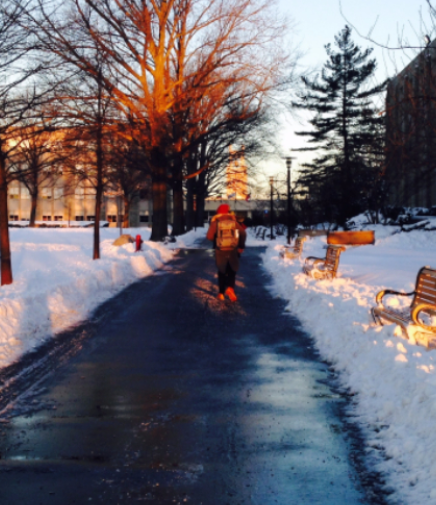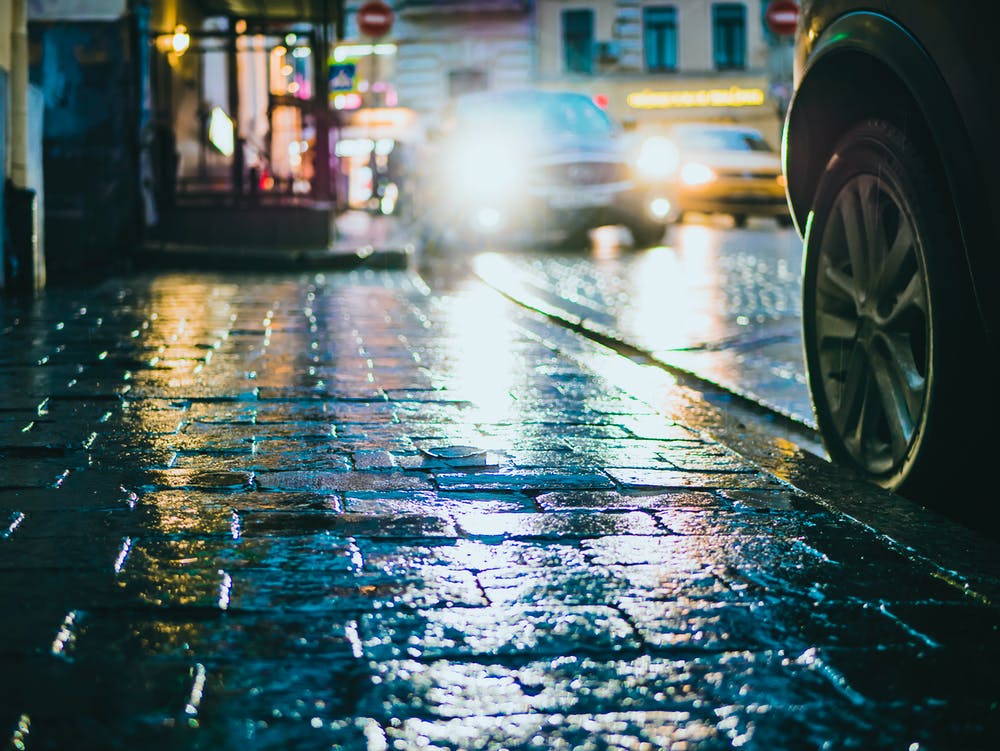Can I Sue If I Slip and Fall On A Sidewalk?
As Seen In:





GET A FREE CONSULTATION
PRACTICE AREAS
RECENT RESULTS



When someone slips and falls on the public sidewalk in New Jersey or Philadelphia, the first question they need to ask is, “who is the liable party?”
That’s not always an easy question to answer.
There needs to be negligence for someone to be liable in personal injury cases. Without negligence, it is unlikely that you will be able to be compensated for your injuries associated with a slip and fall accident.
If with the help of a New Jersey personal injury attorney, it is determined that negligence played a role in the slip and fall injury, then the short answer is, yes, you can sue if you slip and fall on a public sidewalk. Be aware, however, that there is a lot to consider when filing a slip and fall claim.

Slip and Fall Cases: Proving Negligence
Just because you slip and fall, whether it happens on someone’s private property or a public sidewalk (or other public property), it does not necessarily mean that there is negligence. In fact, even if the sidewalk’s condition caused the slip, it does not always prove negligence. To recover damages in slip and fall cases, the injured party must prove that a property owner was at fault or negligent.
For a claim of negligence to stick, you’ll need to prove two things:
- The sidewalk was in an unreasonably unsafe condition.
- The owner either knew, or they should have reasonably known that it was in an unreasonably dangerous condition.
Slip and Fall Cases: Proving Liability on Public Sidewalks
The laws will vary by state regarding liability for unsafe conditions on public sidewalks. A municipality is responsible for maintaining a public sidewalk in certain states, while the property owner is liable in some other states. In some situations, both may be liable.
In New Jersey, the owner of a commercial property is responsible for maintaining the area surrounding their property. That includes parking lots as well as walkways. Generally, government entities and municipalities in New Jersey are not liable for slips and falls occurring in public areas such as sidewalks, walkways, and parking lots.
On the other hand, state and local agencies can be liable in Pennsylvania cases involving slip and fall accidents.
Special Rules in Government Liability Cases
When someone is injured due to a public sidewalk trip and fall, they must know an injured party’s limitations on suing a public entity. There are strict deadlines in filing personal injury claims against a government entity in most states. There are specific limits on the amount of money that can be recovered if a government entity is found liable. A specifically trained New Jersey slip and fall lawyer can help you navigate these confusing legalities.
Although deadlines lengths will vary between states, they will include these deadlines:
- A deadline for notifying the appropriate agency, in writing, about the location and circumstances of the slip and fall accident. This is often called a notice of claim.
- A deadline to file a claim, also known as a statute of limitations, involves a government entity.
Although government entities are generally not liable for slip and fall injuries, they can be sued for negligence under certain circumstances. In New Jersey, a notice of claim must be filed within 90 days of the incident, and then the injured party must wait at least six months to bring a lawsuit.
In Pennsylvania, on the other hand, formal notice must be given to the agency within six months.
Limits on how much a plaintiff can collect in damages also vary between states when filing a slip and fall claim against government agencies, and they can even vary between agencies. Therefore, it is essential to consult a knowledgeable personal injury lawyer who understands the damage claim limitations in your state.

Sidewalk Slip and Fall: How to Prove Liability
It is essential to take photos of the scene, the victim’s clothing, and any injuries that the victim may have suffered as soon as possible with any personal injury case. This documentation is crucial because the government agency may fix the broken sidewalk immediately after the accident. If the slip and fall were related to snow and ice, that condition could change in minutes. Trying to prove a trip and fall liability case without documentation of the sidewalk condition at the exact moment of the accident is nearly impossible.
There may be other evidence necessary in a slip and fall liability case, such as a record of complaints to the government agency regarding the sidewalk condition. Often, showing that the defective condition existed is not always enough to prove liability. A plaintiff must show that the agency or owner had known or reasonably should have known that the unsafe condition existed. Say, for example, a sidewalk was damaged for a year, and the government agency received multiple complaints regarding its condition, you may have a strong case.
Sidewalk Slip and Fall: Hire an Experienced Personal Injury Attorney
The Pennsylvania Slip and Fall attorneys at Richard Hollowell and Associates, LLC has successfully won sidewalk slip and fall cases for countless clients. We will fight to get compensation to cover your medical bills, physical therapy, lost wages, pain and suffering, and more. Contact us today by calling 1-800-681-3550 or fill out our online form for a free consultation.
